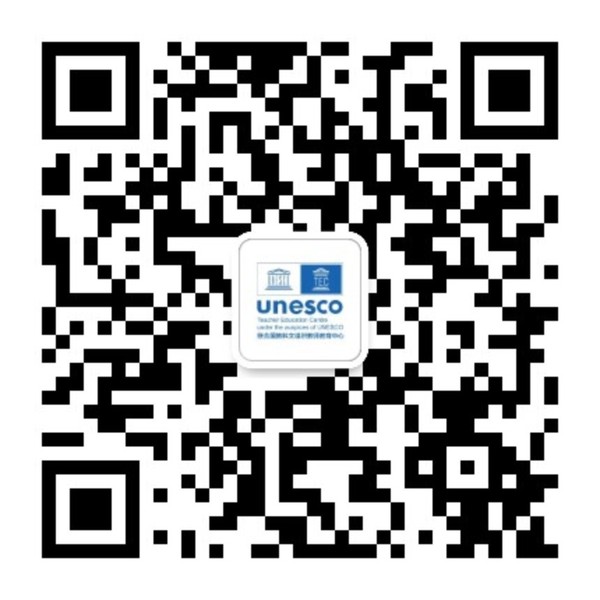On July 21, 2025, the Delegation of Shanghai Municipal Education Commission, the Delegation of the Teacher Education Centre under the auspices of UNESCO (UNESCO TEC) and Shanghai Normal University (SHNU) (hereafter referred to as UNESCO TEC-SHNU Delegation), and the International STEM Education Volunteer Team (hereafter referred to as Volunteer Team) were invited by the Ministry of Education and Vocational Training, Zanzibar (MoEVT) to attend a welcome ceremony hosted by MoEVT. Tanzanian representatives present at the ceremony included several education officials: Mr. Khamis Abdulla Said, Permanent Secretary of MoEVT; Mr. Khalid Masoud Wazir, Deputy Permanent Secretary (in charge of Administration); Dr. Mwanakhamis Adam Ameir, Deputy Permanent Secretary (in charge of Academic Affairs); and Mr. Abdalla Mussa, Executive Director of the Zanzibar Institute of Education.
At the outset of the ceremony, Mr. Khamis Abdulla Said, Permanent Secretary of MoEVT, delivered a welcome speech on behalf of the Tanzanian side, extending warm welcome and sincere gratitude to the UNESCO TEC-SHNU Delegation and the International STEM Education Volunteer Team. Mr. Said noted that China and Tanzania have long maintained a profound friendship and stable cooperative relations. In recent years, UNESCO TEC (hereafter referred to as the Centre) has continuously provided professional training support for mathematics teachers in Tanzania. Among its initiatives, the Smart Classroom donation project has effectively improved the quality of education and the depth and effectiveness of educational technology integration, contributing to the process of educational modernization. The Tanzanian side highly recognized the active participation of the International STEM Education Volunteer Team in the project and expressed sincere thanks to the Shanghai Municipal Government for its long-term strong support.
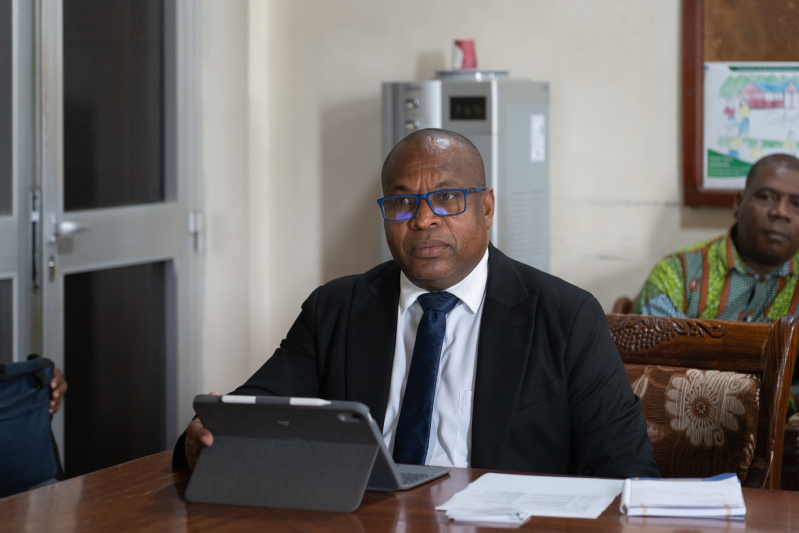
In his speech, Professor Zhang Minxuan, Director of UNESCO TEC, fully affirmed Tanzania’s long-term development goals in the field of education and suggested setting practical phased goals based on local realities to advance the education reform process in a steady manner. He pointed out that scientific research is an important foundation for educational planning, and the cultivation of new teachers is crucial to ensuring the sustainable development of the education system. Furthermore, Professor Zhang Minxuan elaborated on the far-reaching significance of the China-Tanzania Mathematics Teacher Exchange Program. He stated that the program dispatches outstanding teachers from Shanghai to Tanzania for teaching exchanges every year, which not only provides a high-quality platform for professional development for local teachers but also helps promote the localization of teaching concepts and methods, contributing to the development of a teaching system more in line with the actual needs of local students.
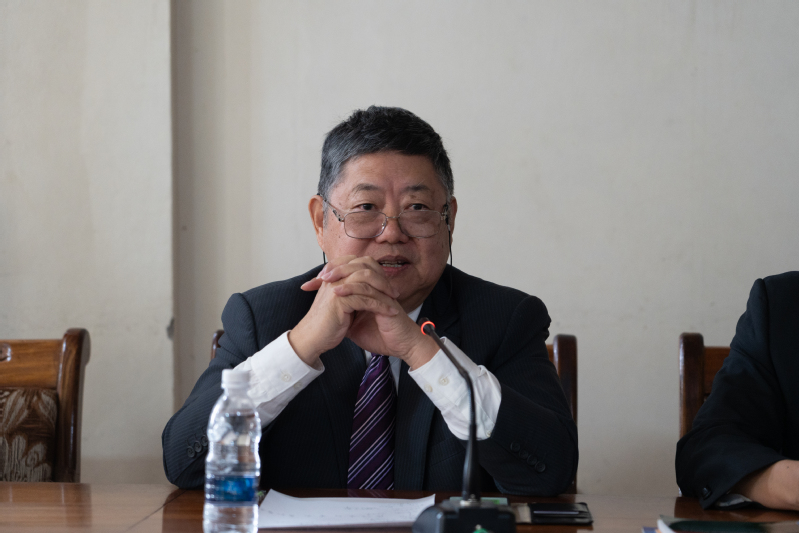
1. Deepening Educational Exchanges: Revisiting Tumekuja Secondary School to Focus on Digital Education Empowering Classroom Practice
After the welcome ceremony, the delegation visited Tumekuja Secondary School again, where they were warmly received by the principal and student representatives. Accompanied by school officials, the delegation toured the school’s digital laboratory and Smart Classroom, and observed on-site demonstrations of intelligent teaching equipment applications by local teachers, which intuitively showcased the innovative use of digital technology in classroom teaching.

At the subsequent teaching resource donation ceremony, Professor Zhang Minxuan, Director of the Centre, donated the Share Maths (Shared Tree) teaching resources to representatives of Tanzanian teachers on behalf of the Chinese side. This set of resources includes textbooks, courseware, lesson plans, and video materials, aiming to support mathematics teaching reform in Zanzibar and promote the localization and digitalization of high-quality educational resources.
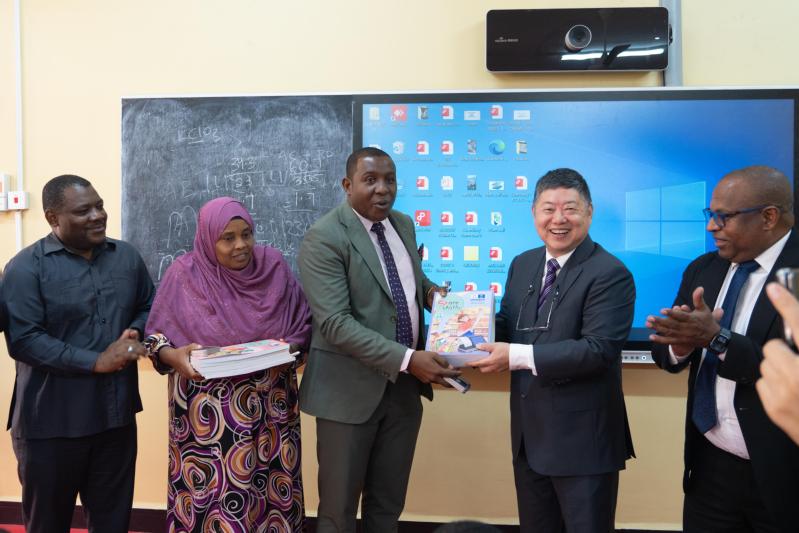
On the afternoon of the same day, Gu Yuanhao, a mathematics teacher from the International Division of Fudan University Affiliated High School, delivered another mathematics lesson titled Geometric Transformations: Rotations in the Smart Classroom of Tumekuja Secondary School. Building on previous teaching efforts, this lesson further deepened the focus on visualizing the concept of rotation and enhancing teacher-student interaction in the classroom.
During the lesson, Teacher Gu Yuanhao fully leveraged the advantages of digital teaching, vividly transforming the abstract concept of rotation into intuitive and operable graphic expressions. He flexibly used the multi-device interaction function of the Smart Classroom to guide students to focus on the dynamic process of geometric transformations, and real-time retrieved and projected students’ learning outcomes on the screen, creating a highly interactive classroom atmosphere. This teaching design not only enhanced students’ perception and understanding of mathematical concepts but also boosted their learning interest and classroom participation.
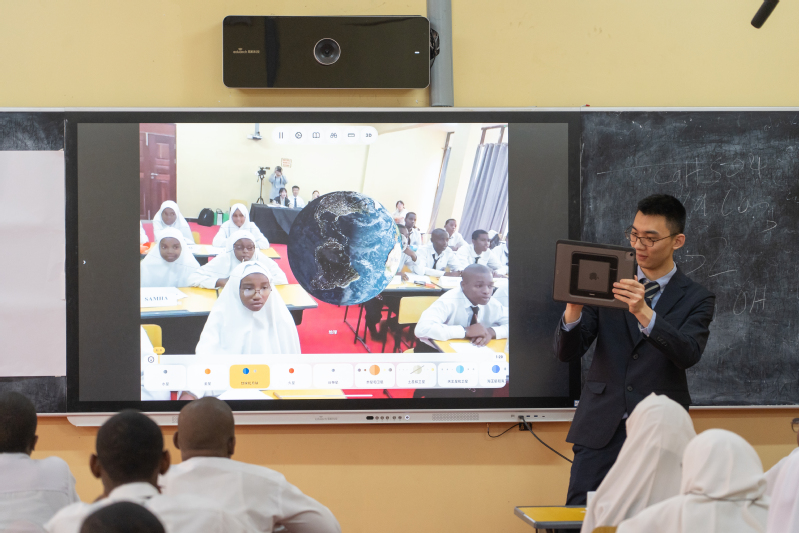
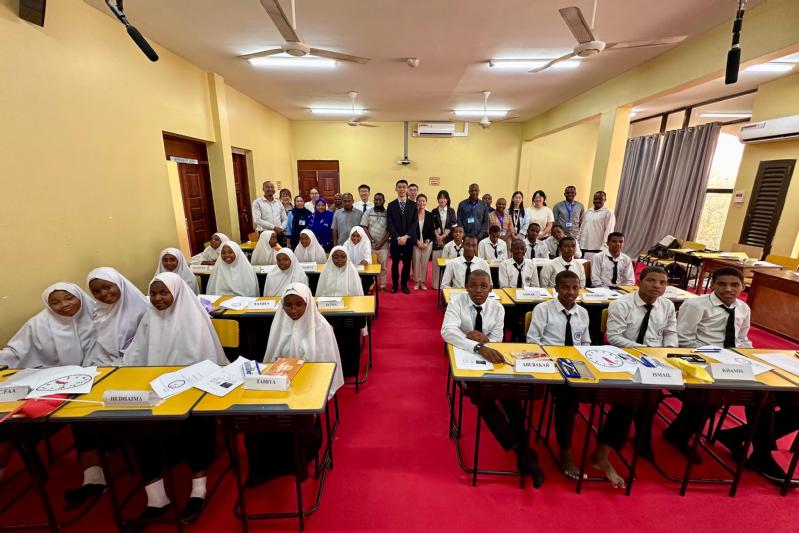
In the Teaching Research Group (TRG) activity, Teacher Gu Yuanhao first reflected on his teaching, systematically reviewing the design ideas and practical highlights of the lesson, and shared his experiences regarding student participation and technology application in the classroom. Subsequently, the Volunteer Team and representatives of Tanzanian teachers conducted group discussions, engaging in in-depth exchanges on the practical issue of how to promote high-quality teaching experiences under conditions of relatively limited equipment. Dr. Shen Yihua, a STEM education expert and China-Tanzania Project Coordinator, suggested that the school set up regular teaching research hours to promote systematic communication among teachers, and emphasized the need to focus on the organic integration of teaching content and technical tools. Zhang Yunji, a doctoral student at SHNU, pointed out from the perspective of teacher professional development that teacher training is the core driving force for promoting teaching reform, and technical tools should always serve teaching goals and the improvement of teachers’ capabilities.
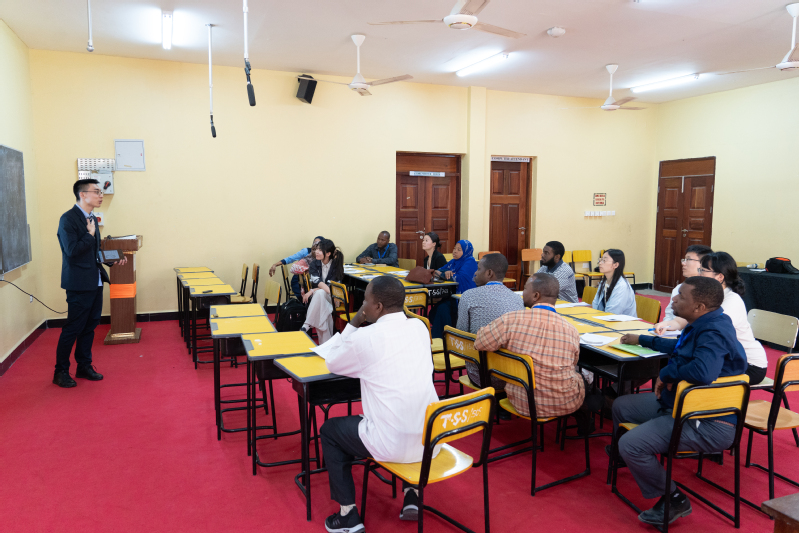
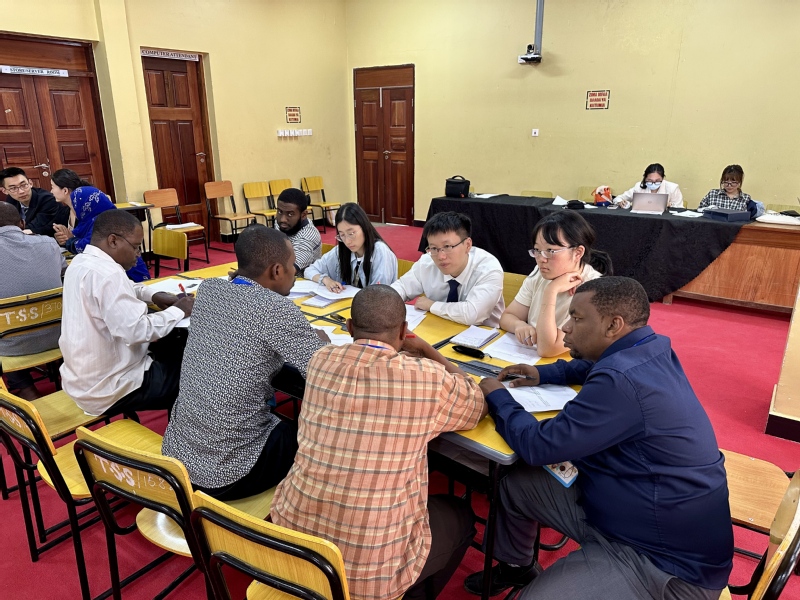
2. China and Tanzania Joining Hands in Education: Volunteer Team Visits Arusha to Jointly Create a New Vision for Cooperation
On the morning of July 22, the UNESCO TEC-SHNU Delegation and the Volunteer Team arrived in Arusha, Tanzania. They visited the Arusha Regional Office and Arusha Secondary School successively, conducting a series of in-depth exchange activities focusing on educational cooperation, teaching practice, and teacher development. Soma Kwanza TV, an educational channel under the Tanzania Institute of Education (TIE), filmed and documented the entire event.
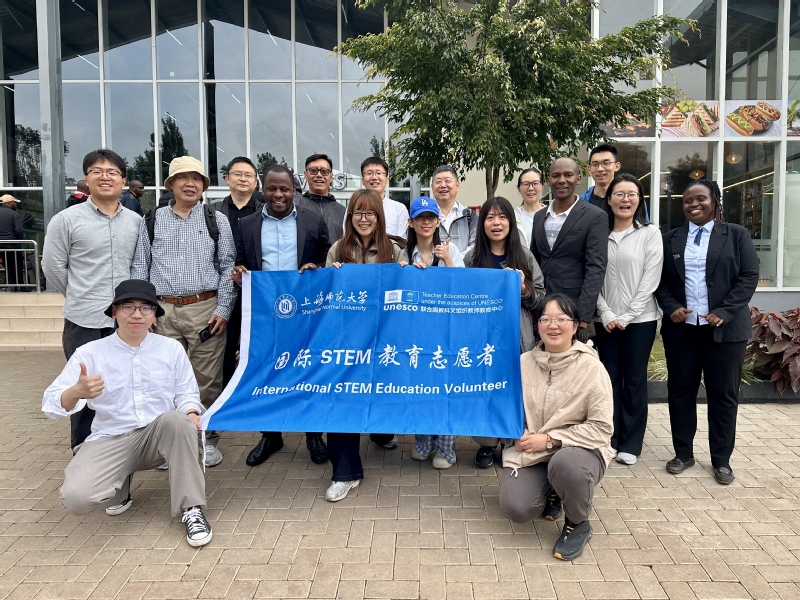
At the Arusha Regional Office, Professor Zhang Minxuan, Director of the Centre, held in-depth exchanges with representatives of the Arusha local government on regional educational development, policy implementation, and resource allocation. The Tanzanian side introduced Arusha’s key position and development potential in Africa’s educational landscape, further enhancing the Volunteer Team’s understanding of the regional educational layout.
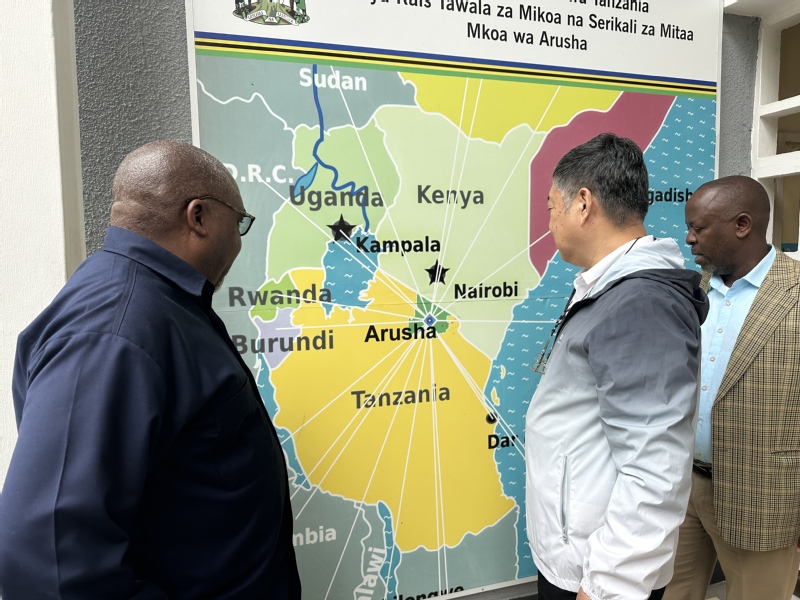
Subsequently, the Volunteer Team visited Arusha Secondary School, toured the campus, and attended a welcome ceremony. At the beginning of the ceremony, Ms. Lorna Nteles, Principal of Arusha Secondary School, delivered a welcome speech, introducing the school’s history, educational philosophy, and development direction. Ms. Asha Msechu, Principal of Enaboishu English Medium Primary School—a partner school in another project—shared the challenges and development opportunities her school faces in terms of teaching resources, teacher training, and educational equity from a practical perspective. Mr. Missaile Albano Musa, Administrative Secretary of the Arusha Region, delivered a concluding speech in which he highly praised the exchange activity, stating that China-Tanzania educational cooperation not only helps improve local teacher capacity but also brings far-reaching impacts in terms of teaching concepts, curriculum resources, and educational technology.
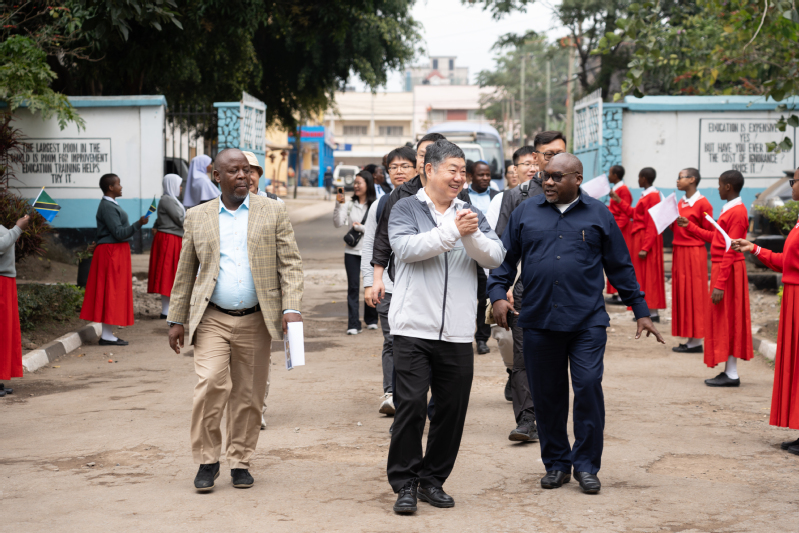
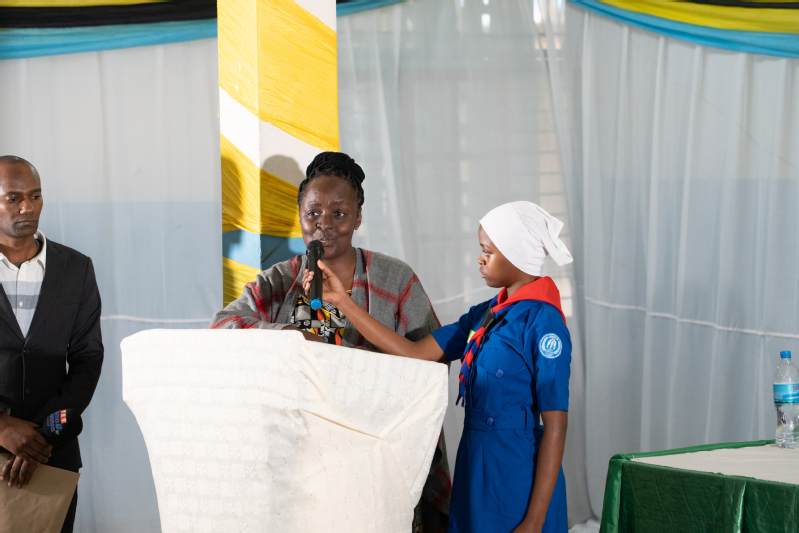
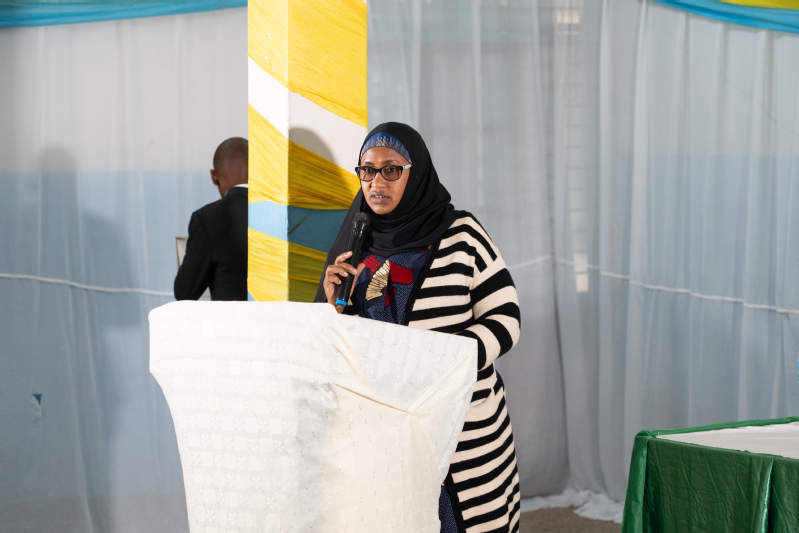
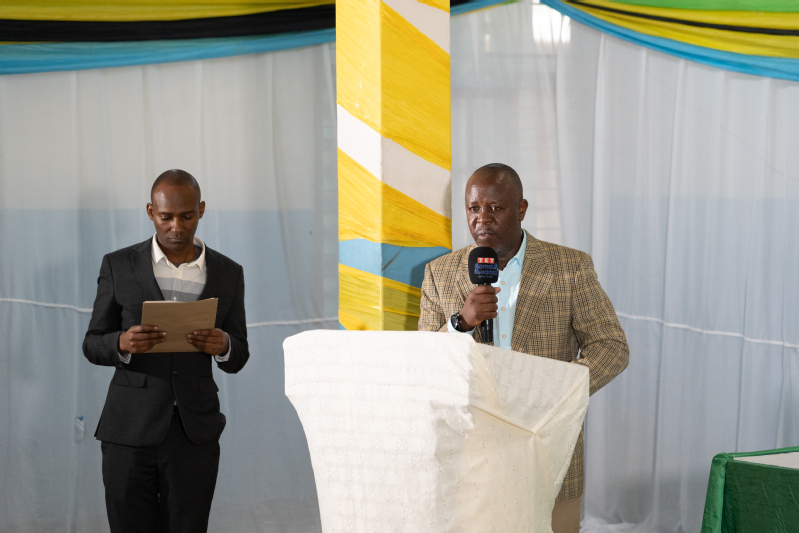
In his speech, Professor Zhang Minxuan, Director of UNESCO TEC, stated that the core of China-Tanzania educational exchange lies in connecting people. He emphasized that education not only changes destinies but also shapes the future, and China and Tanzania should continue to promote understanding through exchanges to advance the in-depth and sustainable development of educational projects.

Dr. Godson Lema, Director of Innovation and Curriculum Development at TIE, reviewed the achievements of long-term cooperation between the two sides in the field of mathematics education and highly recognized the careful organization of this event by Arusha Secondary School.
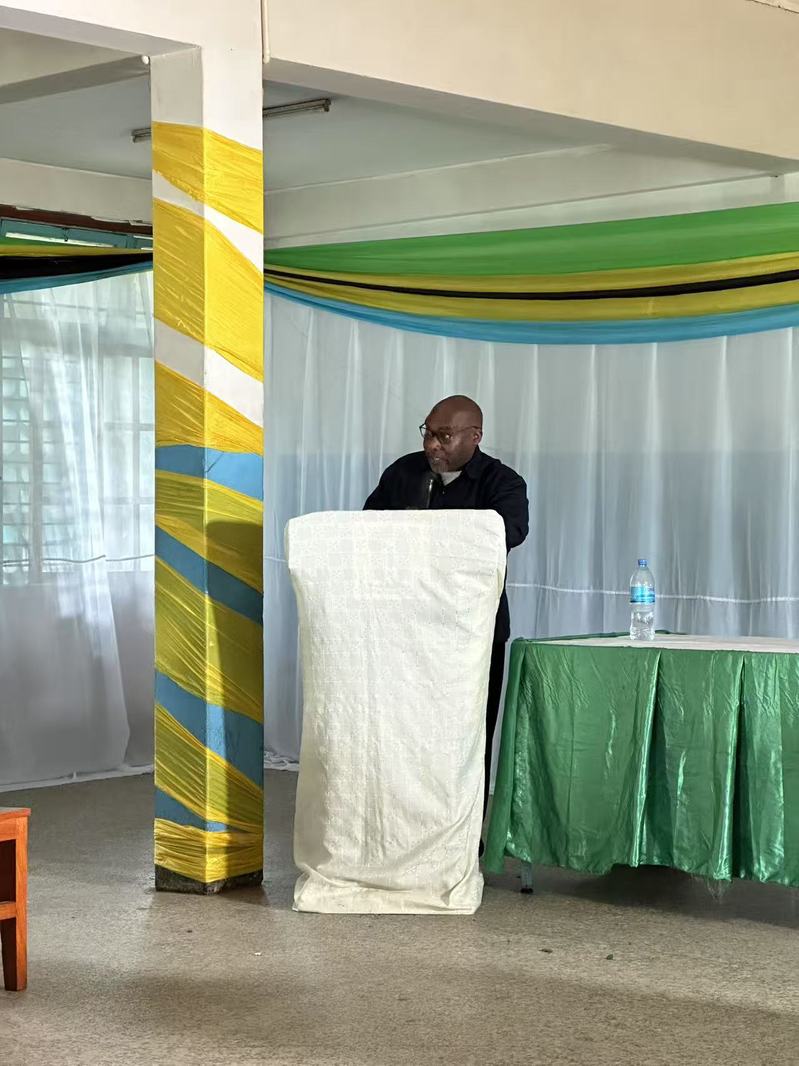
Subsequently, Dr. Shen Yihua gave a systematic introduction to the China-Tanzania Mathematics Teacher Exchange Program, comprehensively explaining the project’s origin, structural design, operation mechanism, and phased achievements. A video recording of Tanzanian teachers teaching in China was also played on site, helping participating teachers gain an intuitive understanding of the project’s implementation process and practical effects, which aroused strong resonance and positive responses.
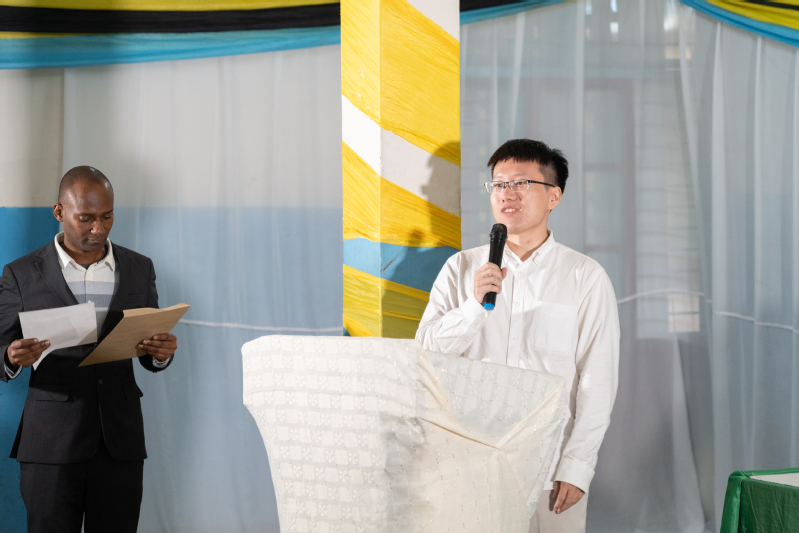
Finally, Professor Hu Guoyong, Director of the International Centre for Teacher Education at SHNU, and Dr. Shen Yihua donated the Share Maths series of teaching resources to representatives of Tanzanian teachers. Professor Zhang Minxuan, Director of UNESCO TEC, exchanged souvenirs with representatives of Tanzanian teachers, symbolizing the deepening and sustainable development of educational cooperation between the two countries. After the welcome ceremony, representatives from China and Tanzania engaged in in-depth and enthusiastic exchanges with on-site teachers and students, creating a lively atmosphere.
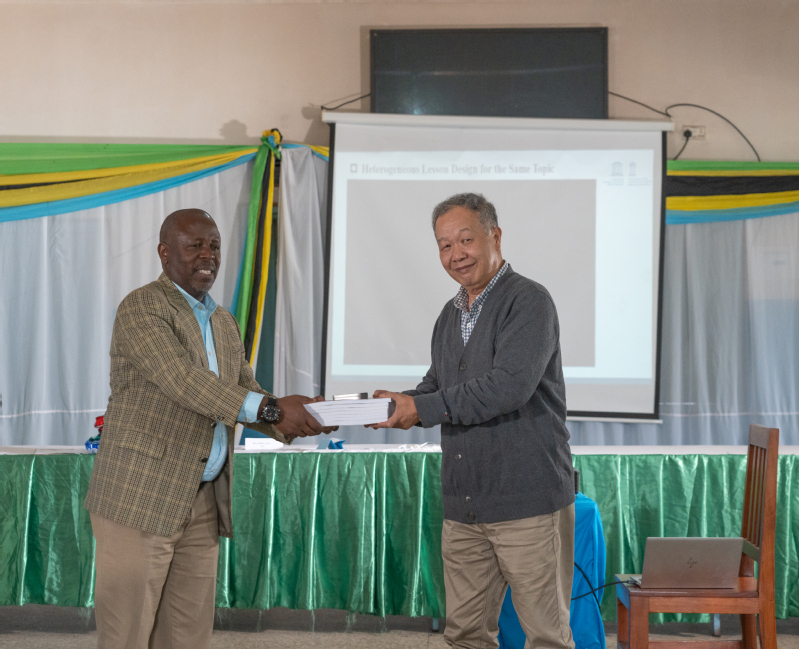
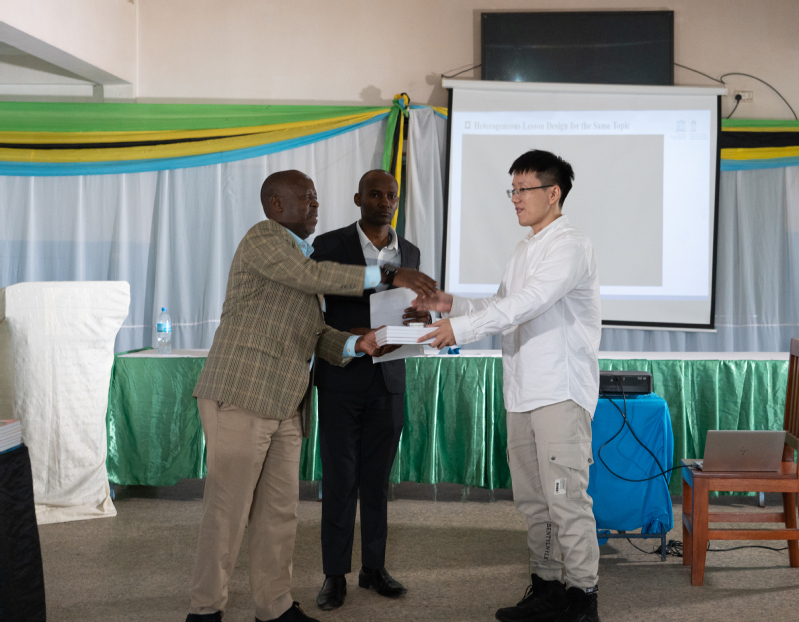

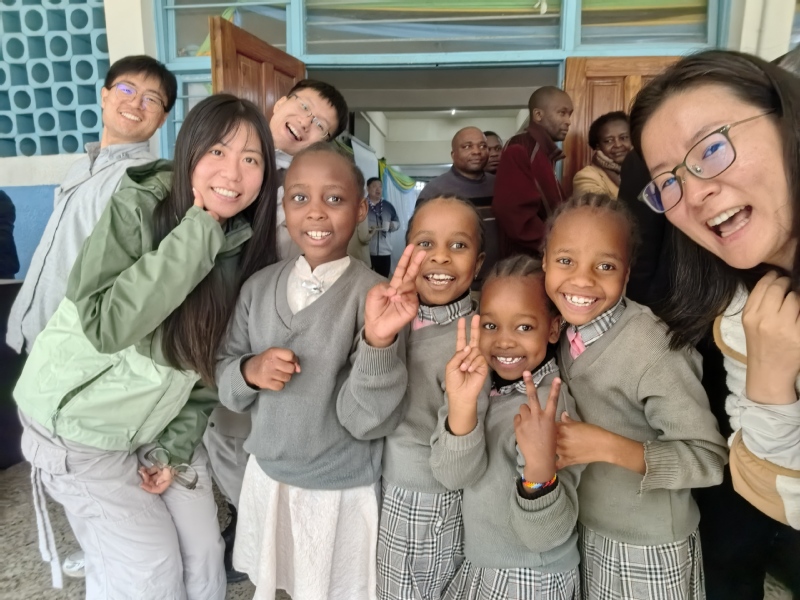
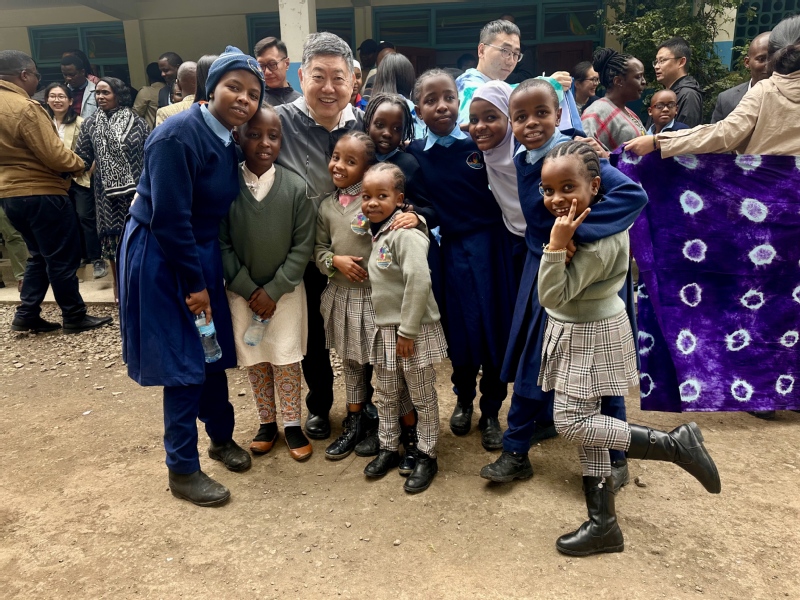

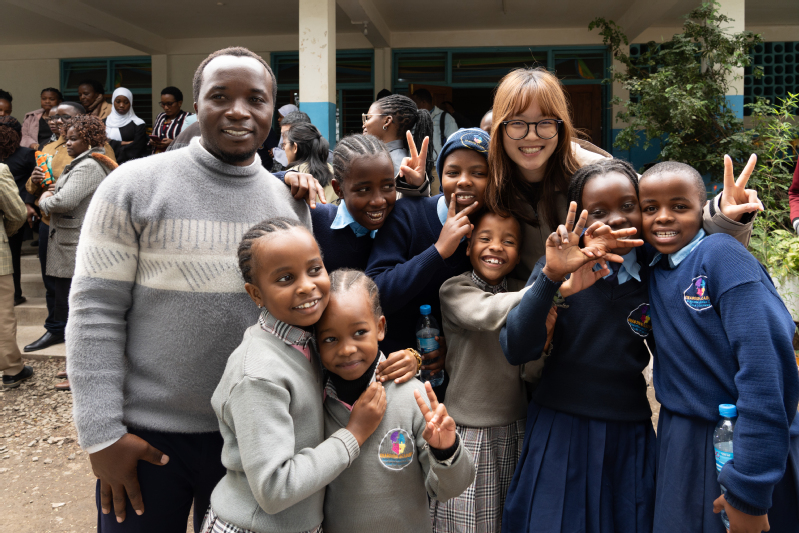
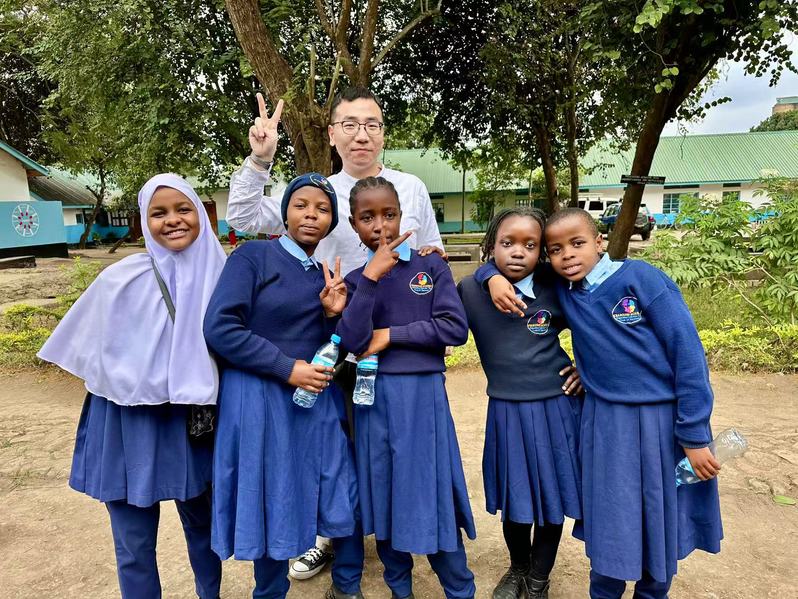
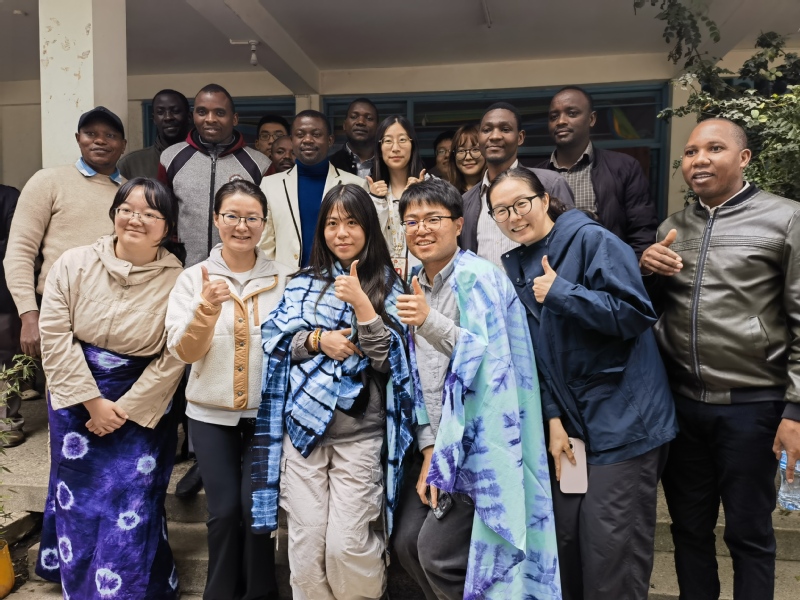
3. In-depth Advancement of Teaching Research Exchanges: Volunteer Team Continues Teaching Observations and Professional Dialogues in Arusha’s Primary and Secondary Schools
On the morning of July 23, the Volunteer Team arrived at Enaboishu English Medium Primary School, where teachers and students gave the team a grand welcome with drum music. During the subsequent teaching observation session, Mr. Gerald Lazaro Ngerenza, a mathematics teacher at Enaboishu Primary School, presented a mathematics lesson titled Calculating the Surface Area of a Cylinder to the Volunteer Team. He skillfully combined physical models with paper-cutting demonstrations to transform abstract concepts into intuitive operations, helping students understand the area composition relationship between the lateral surface and the base of a cylinder after unfolding. The entire lesson prominently demonstrated the local teacher’s innovative practice of integrating hands-on experiments and visualization strategies into teaching design, which was highly recognized by teachers from both sides.
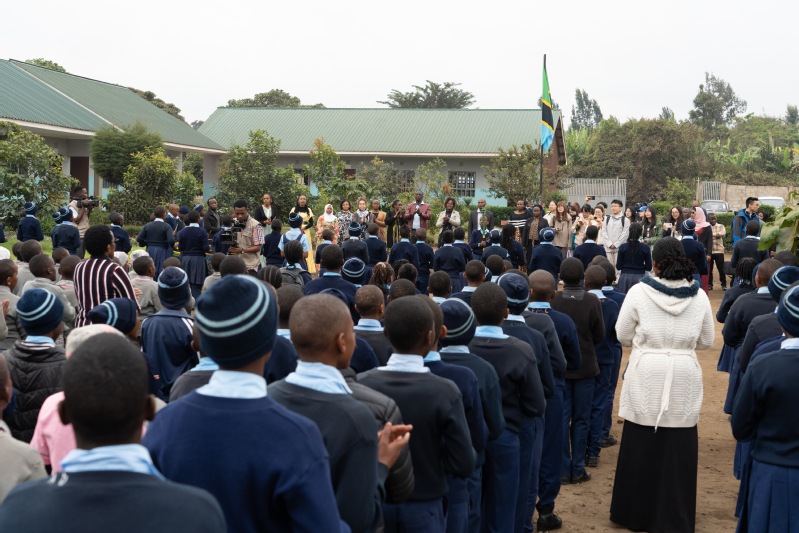
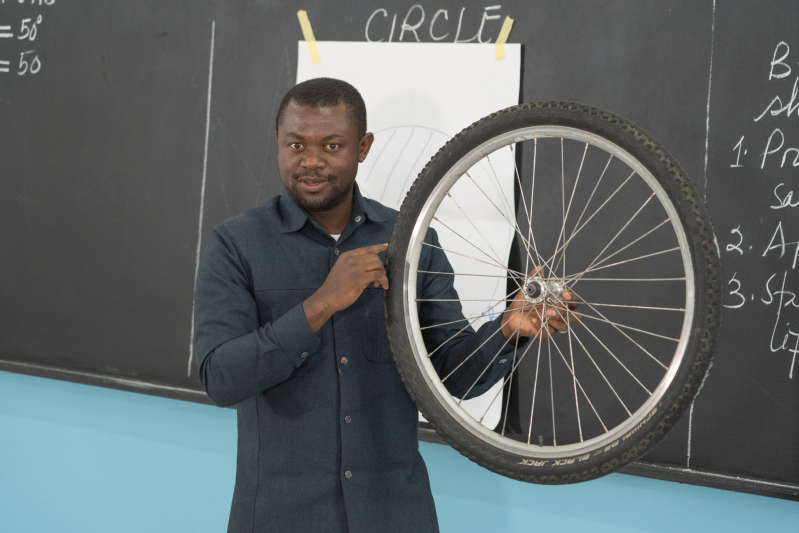
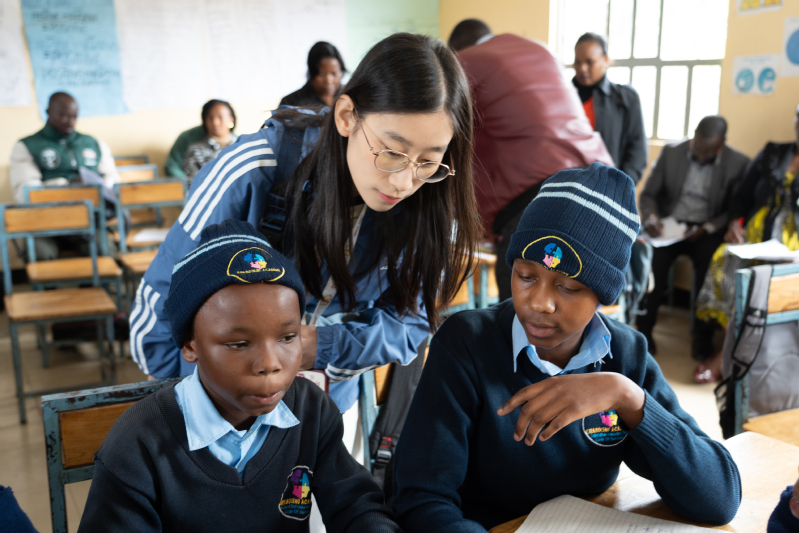
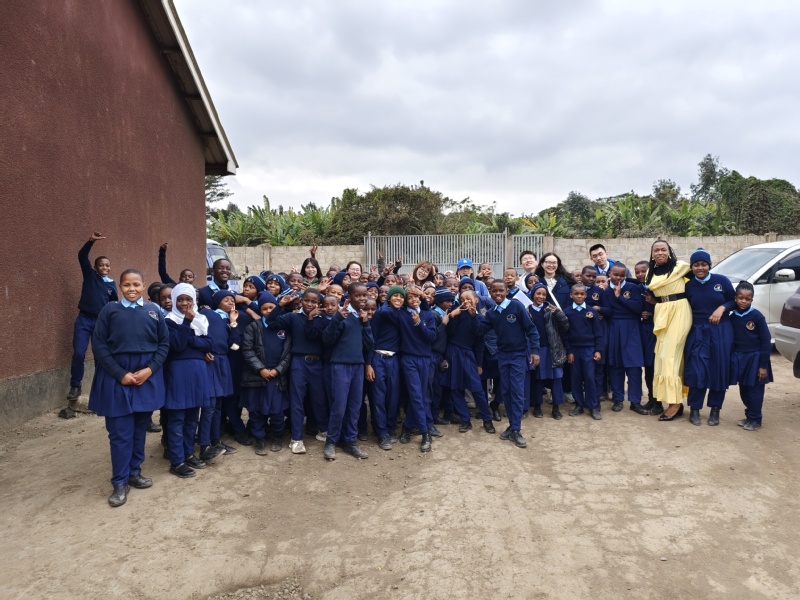
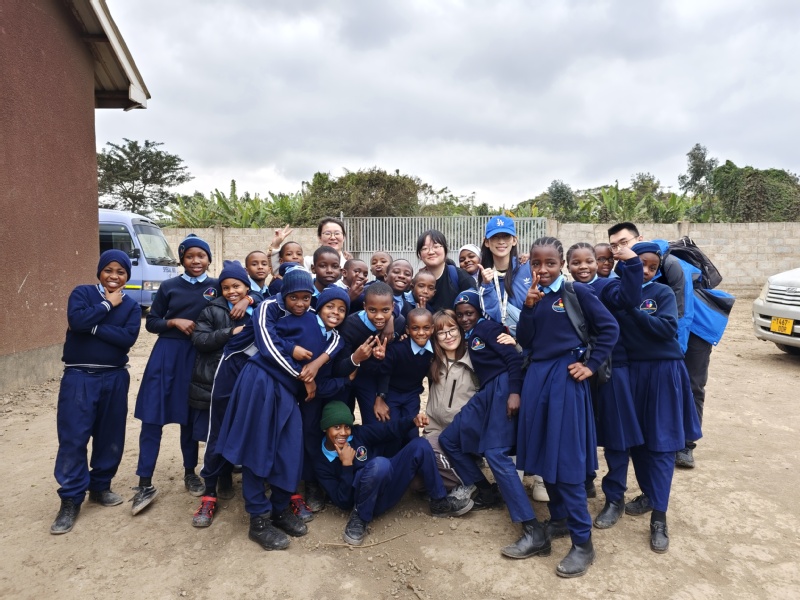
On the afternoon of July 23, the Volunteer Team moved to Arusha Secondary School to continue the day’s teaching exchange activities. During the classroom observation session, Mr. Emanuel Geoffrey Mweta, a mathematics teacher, taught the lesson Theorem of Inscribed Angles Subtended by the Same Arc. Teacher Mweta skillfully integrated diagram demonstrations with heuristic questioning, guiding students step by step to gain a deep understanding of the relationship between inscribed angles subtended by the same arc. The lesson not only emphasized the rigor of knowledge logic but also fully stimulated students’ thinking participation. The entire class featured good interaction and high achievement of teaching goals, reflecting the local teacher’s practical ability in geometry teaching. After the classroom observation, Chinese and Tanzanian teachers immediately conducted group teaching research activities, engaging in in-depth exchanges around key elements in the classroom observation checklist. During the discussion, Tanzanian teachers gradually clarified their understanding of core teaching strategies and actively reflected on their own practical experiences, stating that they had gained substantial insights. This high-level teaching research dialogue, which lasted for more than an hour, not only promoted in-depth collision of educational concepts but also laid a solid foundation for sustained collaboration and professional growth between Chinese and Tanzanian teachers.
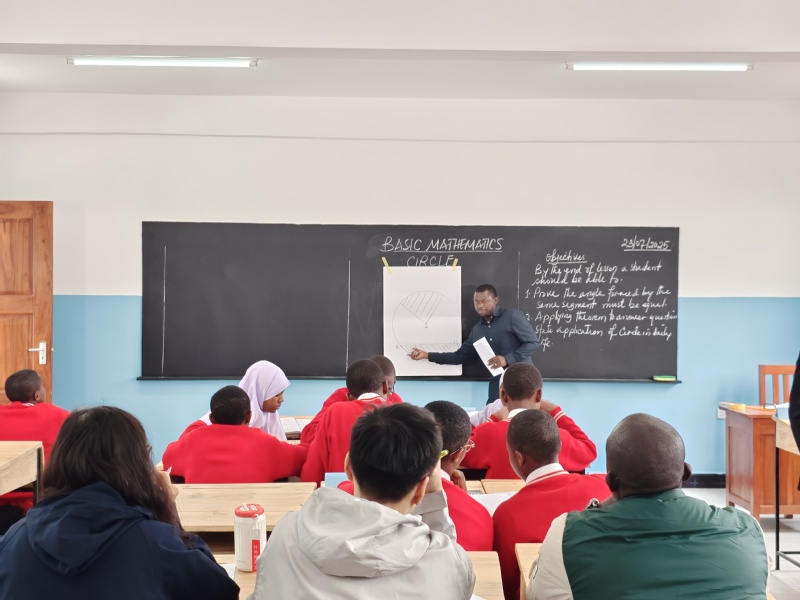
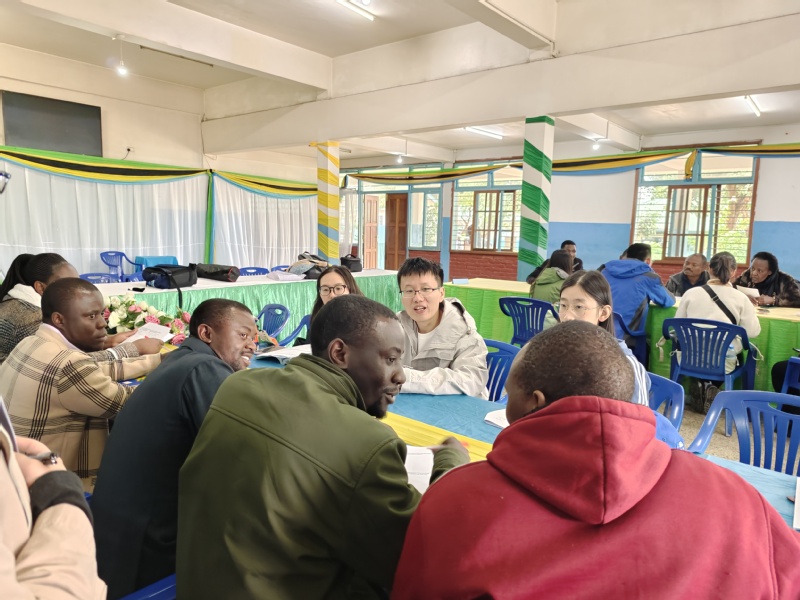
4. Visiting Rural Teacher Training: Touring Marangu Teachers College
On the morning of July 24, the Volunteer Team arrived at Marangu Teachers College, conducting in-depth exchanges and thematic dialogues on the construction of the college’s teacher education system and Shanghai’s practical experience in teacher professional development.
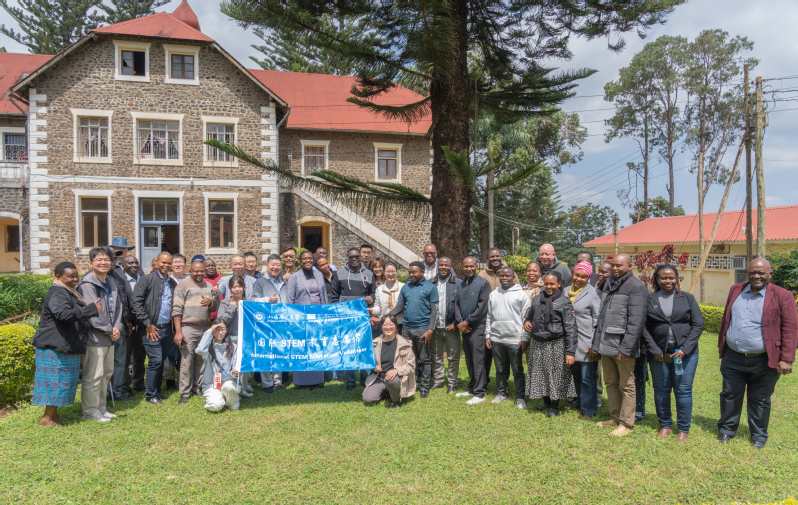
During the guest welcome session, Mr. Boniface Nichodemus Lyimo, a representative of teacher education at Marangu Teachers College, gave a detailed introduction to the college’s development orientation and school-running characteristics. He pointed out that Marangu Teachers College is one of Tanzania’s 35 public teacher training institutions, long focusing on the training of language teachers and committed to improving the quality of language teaching in basic education through systematic training. Through historical photos presented on site, the college clearly demonstrated its educational philosophy of valuing both inheritance and innovation.

Subsequently, Professor Zhang Minxuan, Director of UNESCO TEC, delivered a thematic sharing report. Starting with Shanghai’s geographical location and population structure, he conducted an in-depth analysis of the logic behind Shanghai students’ consistent excellent performance in the Programme for International Student Assessment (PISA), focusing on explaining the core role played by teacher professional growth. Professor Zhang Minxuan specifically introduced the experience of Shanghai teachers’ extensive participation in the Teaching and Learning International Survey (TALIS), and pointed out that the development achievements of Shanghai’s education stem not only from the accumulation of grassroots practices but also from policy support at the national level. He then further shared Shanghai’s specific practices in teacher training, integration of pre-service and in-service development, and school-based teaching research systems, providing a reference experience path for the Tanzanian side in teacher workforce construction.
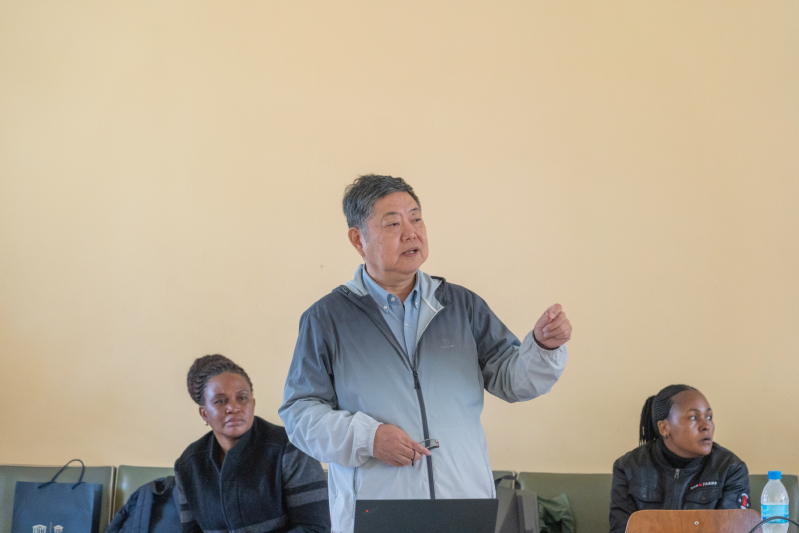
5. Revisiting Arusha Secondary School: Deepening Sino-Tanzanian Mathematics Teaching Exchange with Theorem of Inscribed Angles Subtended by the Same Arc
On the morning of July 25, Dr. Fu Jing, a mathematics teacher from the International Division of Shanghai Experimental School, delivered a demonstration lesson titled Theorem of Inscribed Angles Subtended by the Same Arc to students of the school. At the beginning of the lesson, Dr. Fu Jing guided students to review core geometric concepts such as arcs and central angles in a step-by-step manner. She then skillfully used animation demonstrations to dynamically present the process of positional changes of points on a circle, helping students intuitively understand the geometric essence of the core proposition that inscribed angles subtended by the same arc are equal, and further inspired students to think about the in-depth logical relationship that a single arc can correspond to an infinite number of inscribed angles. The entire lesson had a tight rhythm and reasonable structure, while also strengthening students’ understanding of geometric laws.
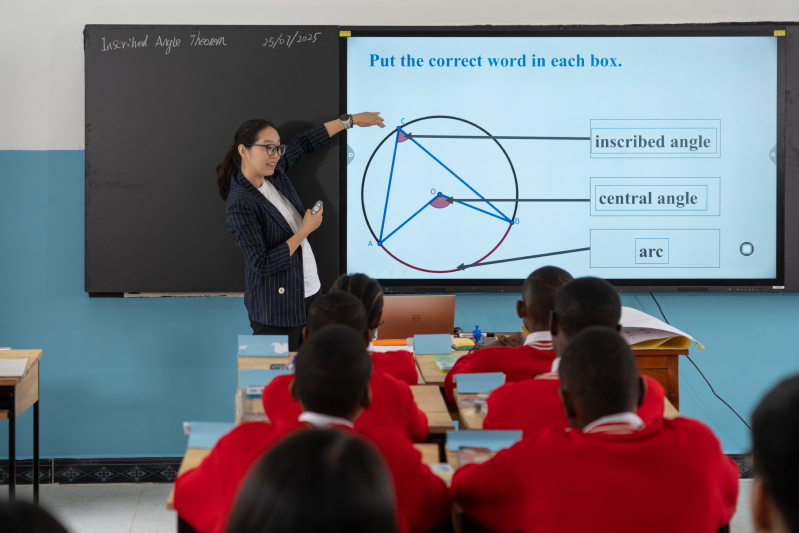
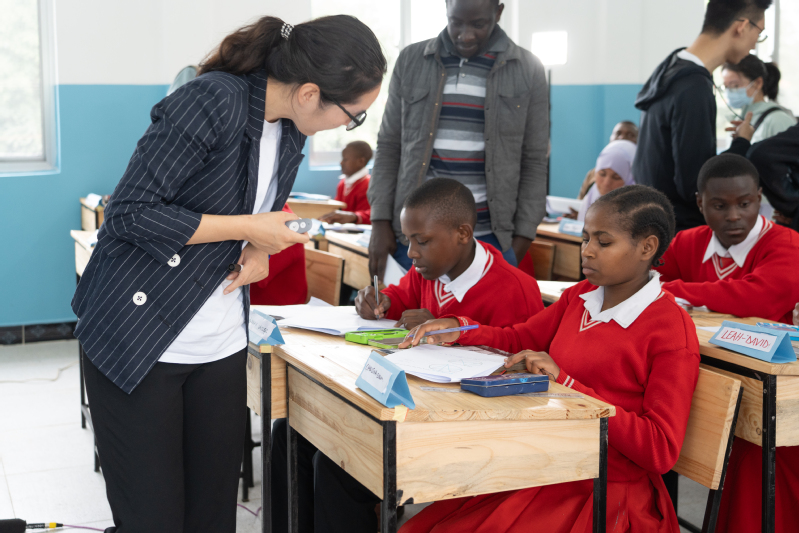
After the lesson, Chinese and Tanzanian teachers held in-depth discussions on student classroom participation and teaching methods. Tanzanian teachers particularly emphasized that teaching content should be closely linked to students’ prior knowledge base, and actively put forward suggestions for improving the new lesson teaching segment, aiming to further enhance teaching effectiveness and stimulate students’ multi-angle thinking and diverse problem-solving abilities.

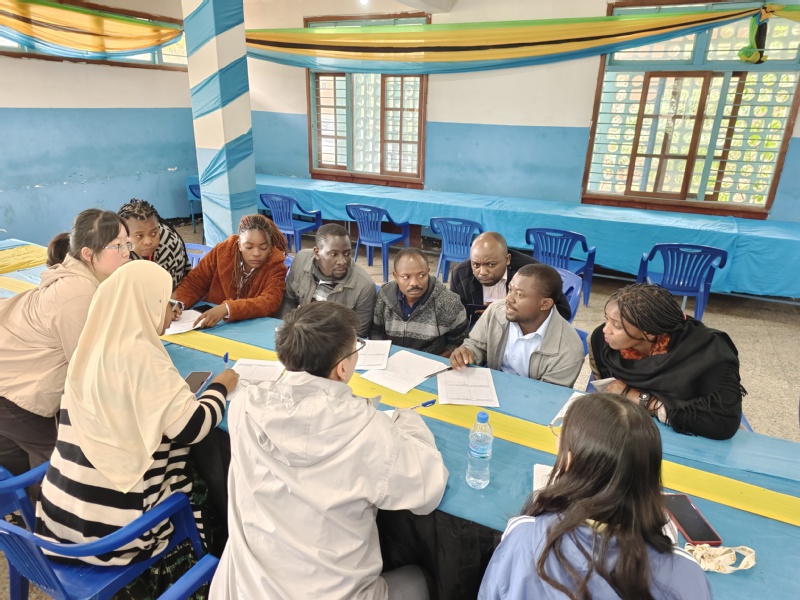
6. Over 100 Tanzanian Teachers Gather at Arusha Secondary School to Share Mathematics Teaching Experiences
After multiple teaching rehearsals and in-depth discussions over the weekend, Dr. Fu Jing delivered another public lesson on Theorem of Inscribed Angles Subtended by the Same Arc at Arusha Secondary School on the morning of July 28. This lesson attracted over 100 mathematics teachers from the Arusha region to observe on site and actively participate in discussions. In the class, Dr. Fu Jing introduced relevant geometric concepts in a step-by-step manner, carefully guided students to review the use of protractors, and encouraged students to explore the mathematical theorem of inscribed angles subtended by the same arc being equal through hands-on practice. The classroom atmosphere was lively, and students achieved remarkable learning results.
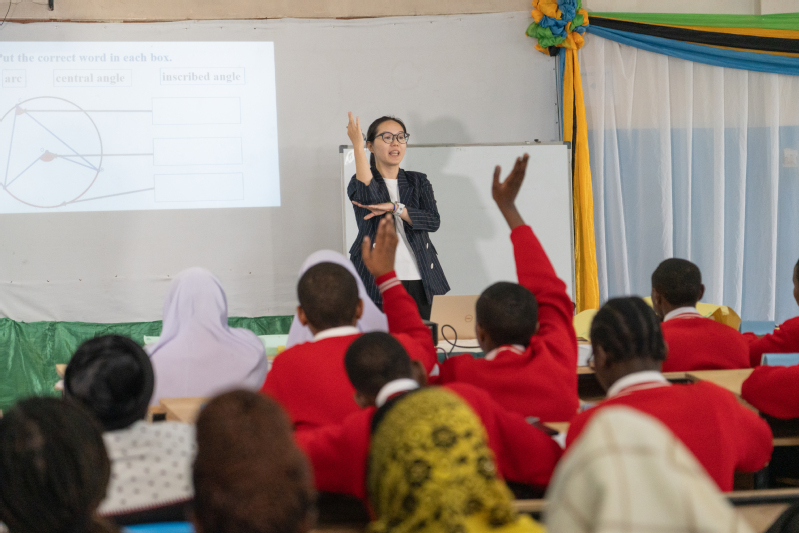
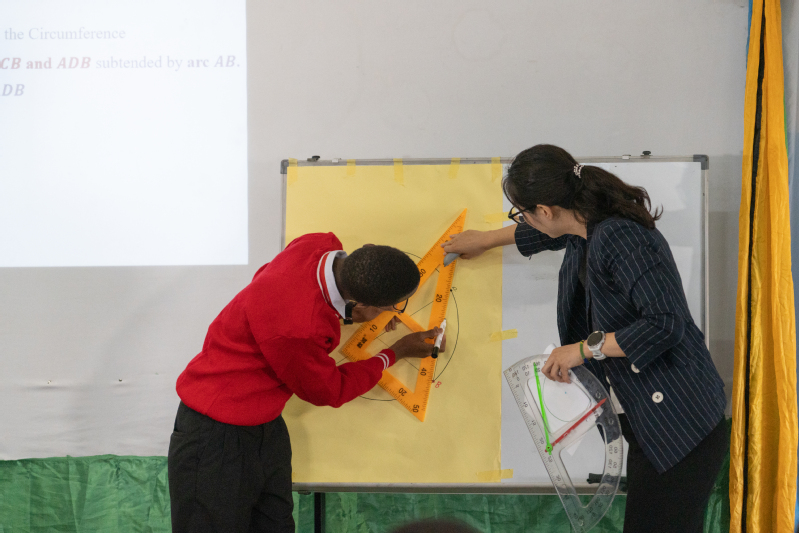
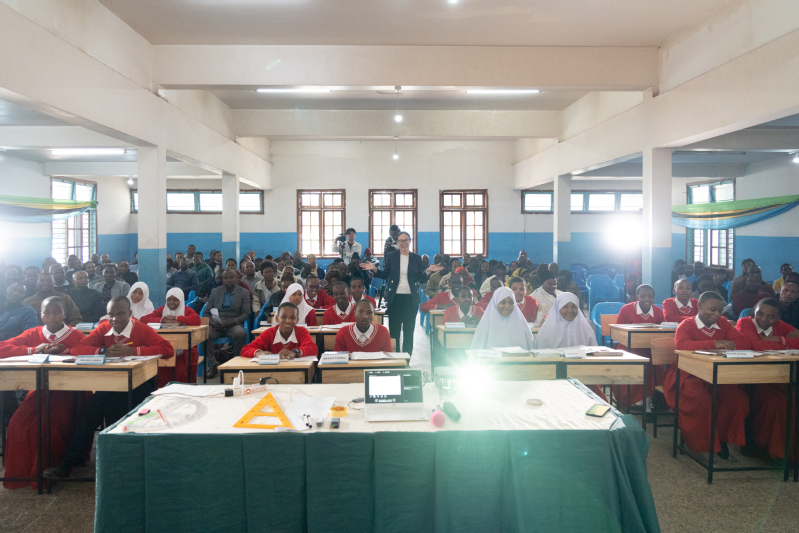
During the subsequent teaching exchange session, Shi Yujia, a master’s student at SHNU, systematically introduced the process and core characteristics of Shanghai’s TRG activities, and explained the usage method of the classroom observation checklist in detail, helping Arusha teachers better understand and flexibly use this tool for classroom observation and teaching recording. Gong Yushu, an undergraduate student at SHNU, explained the core concepts of mathematical tasks and variation teaching in the teaching manual in a simple and in-depth manner with specific teaching cases, helping Arusha teachers fully grasp the connotation of variation teaching and effectively transform it into classroom practice. In the subsequent teaching research discussion, Arusha teachers were divided into groups and actively shared their lesson observation experiences and teaching insights under the guidance of the observation checklist, creating a lively and productive exchange atmosphere.
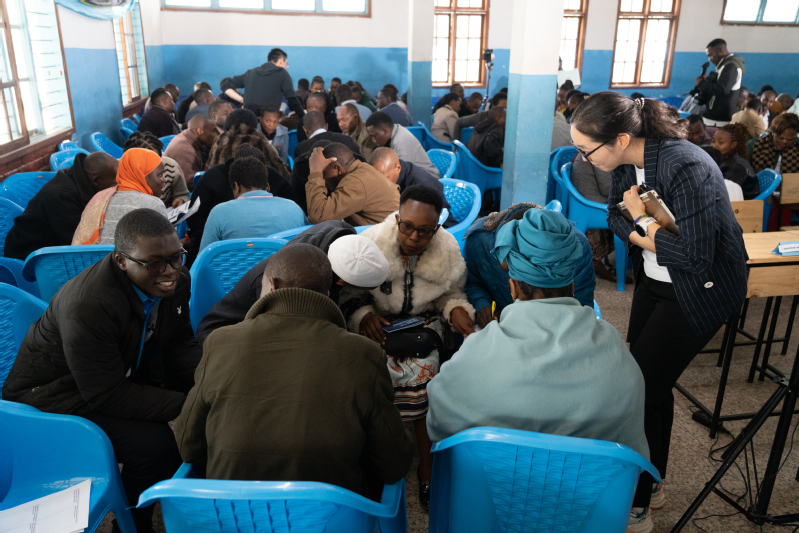
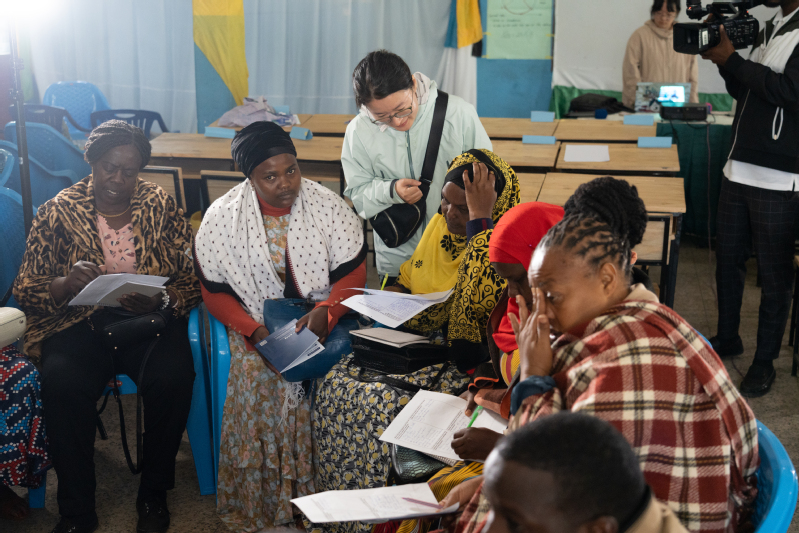
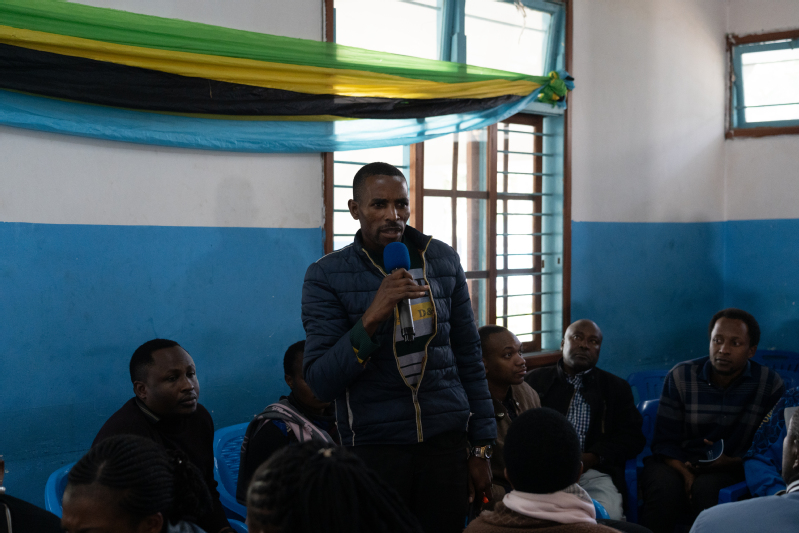
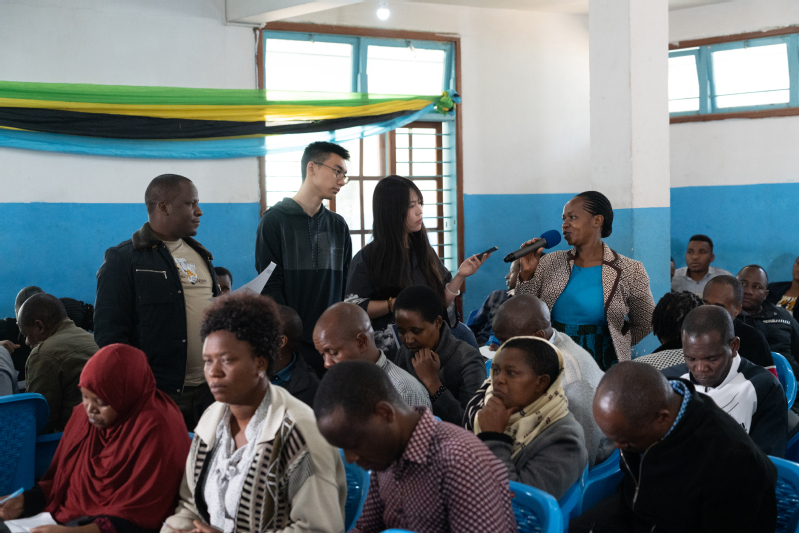
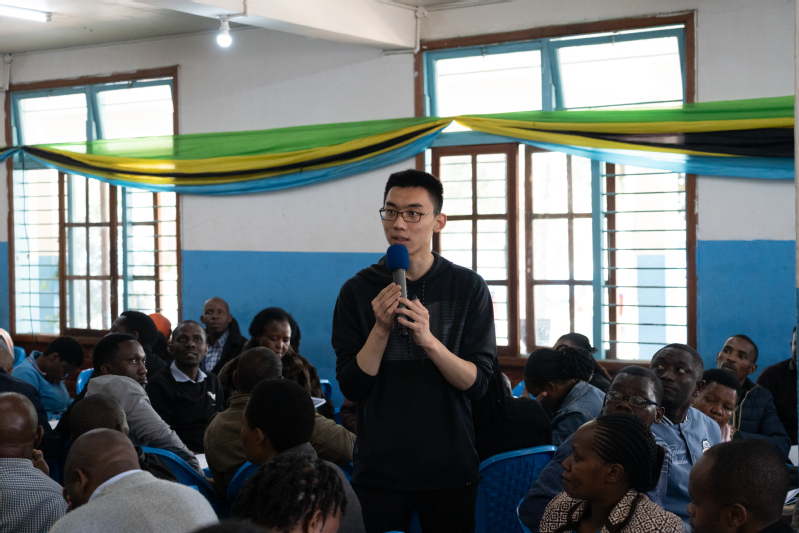
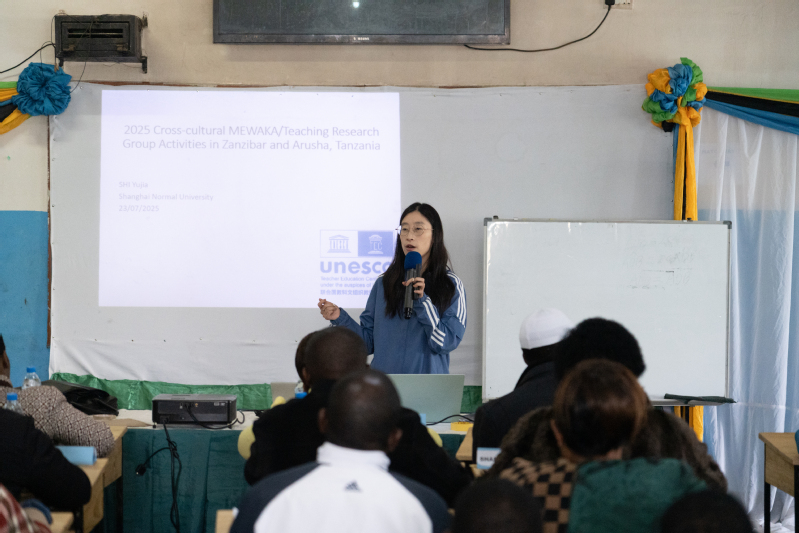
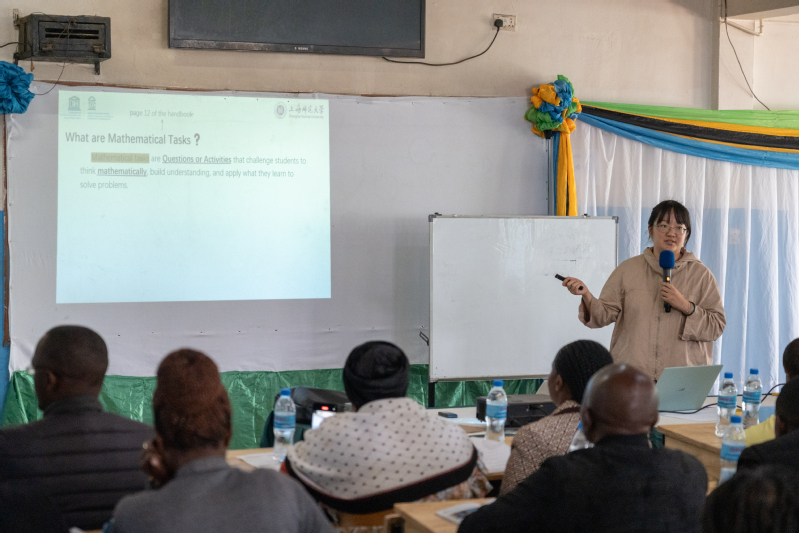
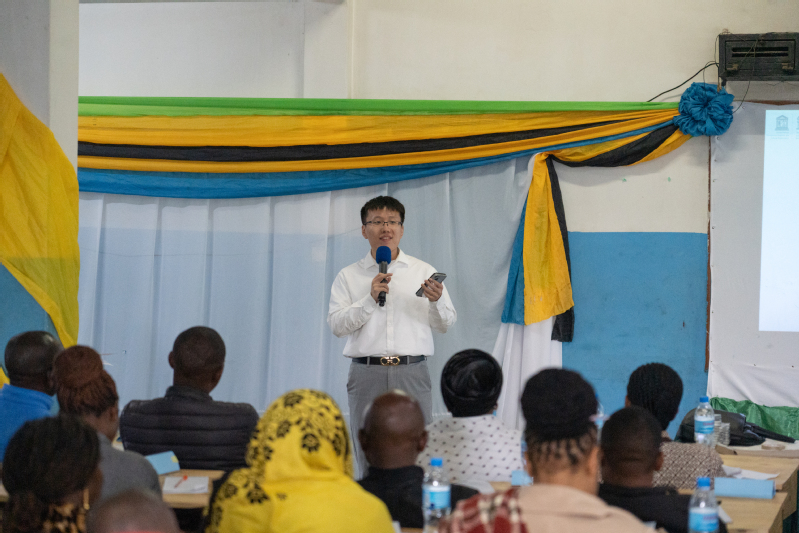
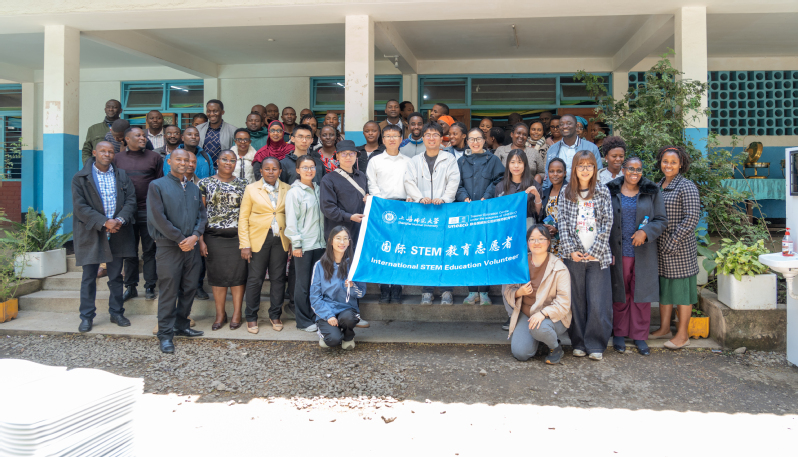
The in-depth visits of the International STEM Education Volunteer Team to Zanzibar and Arusha not only fully demonstrated the phased achievements of China-Tanzania educational cooperation but also injected new momentum into the future exchange and collaboration between the two sides. Through diverse forms of interaction—including demonstration teaching, classroom observation, teaching research dialogue, teaching resource sharing, and thematic lectures—educators from China and Tanzania have continuously deepened exchanges in concept integration and technology application, promoting the implementation of advanced teaching methods in localized practice.
Education is invigorated through exchanges. Standing at the intersection of high-quality educational development in the new era, UNESCO TEC will continue to integrate high-quality resources, expand the breadth and depth of teacher development projects, contribute to the education reform process in Tanzania and more African countries, and continuously provide Chinese wisdom and Chinese solutions for building a fair, inclusive, and sustainable education system.




